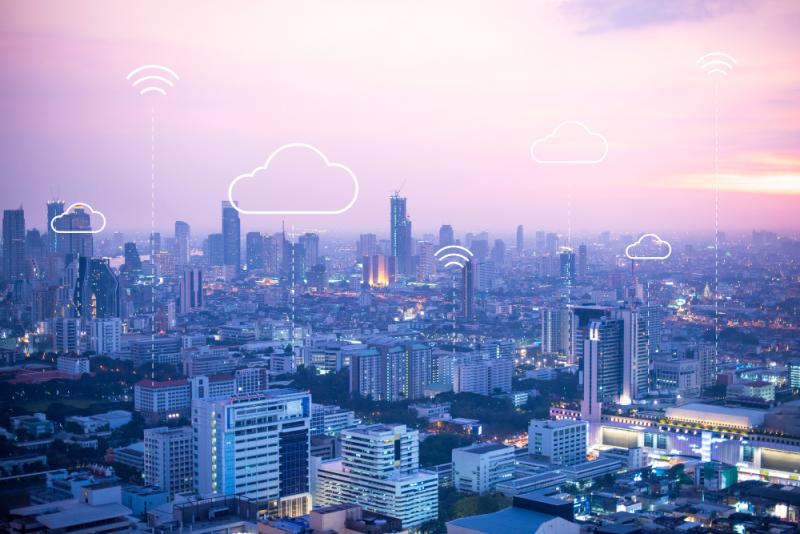Major Differences : Omnichannel and Multichannel Marketing

There are different methods to advertise your products or services. These methods allow you to grow a business, as long as those valuable advertising methods are executed appropriately and tactically. Among them, these two types of advertising are considered profitable and impactful;
Multichannel and omnichannel marketing.
Different businesses like; e-commerce, advertising agency, hospitality, pharmacy, etc., use different marketing methods depending on your needs. Some of them use multichannel marketing and others focus on omnichannel marketing. In many respects, these two marketing methods have several similarities. But, few key differences make them unique.
Multichannel marketing
Multichannel marketing is the process of using direct and indirect communication channels to sell your products or services or interact with your customer. Channel here means social media, emails, display advertising, a website, a retail location, a promotional event, etc.
Multi-channel marketing primarily focuses on a unique strategy for each channel.
Omnichannel Marketing
Omnichannel marketing is also the form of advertising in which both channels, online and offline, come to sell products or services. Here, a channel refers to various social networks, websites, blogs, websites, emails, etc.
One goal of omnichannel marketing is to provide integrated experiences.
Key Differences Between Multichannel And Omni-channel Marketing
Multichannel marketing-
- Multi-channel marketing uses multiple channels, but each channel has its purpose. In other words, each channel may work independently.
- All communication channels work autonomously without communication between any channel.
- Provides organization-centric messaging
- Broadcast different messages on different channels
- Restricted accessibility of the data stream (one channel from time to time)
- Lack of clarity between channels.
- Multi-channel marketing improves reach
Omni-channel marketing-
- Omnichannel marketing works across different channels too, but those channels are behaviorally connected, which means it provides an integrated experience.
- All communication channels work collaboratively and at the sink.
- Omnichannel marketing offers customer-centric messages.
- Delivers consistent and uniform messages across all channels.
- Simply accessible to all channels (data stream)
- Comprehensive transparency between all channels
- Omnichannel Marketing Helps Expand Personalized Communication With Customers
Statistics About Multichannel Marketing Benefits
- 95% of marketers say they know how important multichannel is to targeting.
- 72% of consumers say they prefer to connect with brands and companies through multiple channels.
- 91% of retail brands use two or more social media channels.
- 50% of marketers using multichannel marketing strategies generally succeeded in meeting the financial goal.
- Each Internet user has 5.54 social media accounts on average.
- 90% of customers prefer consistent interactions across all channels.
- Digital video is used by 91% of companies that have estimated revenues of more than $ 500 million.
- Currently, 51% of companies use at least eight marketing channels.
- Multi-channel B2B campaigns see an average 24% increase in ROI.
- Those with a strong multichannel focus on their marketing see a 9.5% increase in annual revenue.
Statistics About Omnichannel Marketing Benefits
- Companies with omnichannel customer engagement strategies retain an average of 89% of their customers.
- 87% of customers think brands need to try harder to provide a seamless experience.
- According to a survey by Aspect Software, companies that adopt omnichannel marketing strategies achieve 91% higher customer retention rates year-over-year than companies that don't.
- Forty-eight percent of customers tend to share their information for a more personalized experience.
- Customers who have an omnichannel experience spend 13 percent more online than those who only use one channel.
- Sixty percent of millennials expect a consistent brand experience, whether they interact online, in store, or over the phone.
- 9 out of 10 consumers want an omnichannel experience with perfect service between communication methods. (UC today)
- 85% of digital consumers start the shopping workflow on one device and finish it on another.
The Challenges That Are Mostly Face With Multichannel Marketing
- Different types of advertising need a different approach. Multi-channel marketing is a time-consuming phenomenon. There are some challenges here with multichannel marketing that most marketers experienced.
- Managing one channel is not very expensive, but multiple channels require a large amount of investment. Multi-channel marketing is an expensive and time-consuming phenomenon. It does not mean that you will always be successful if you instigate a multi-channel marketing strategy. Most marketers face these kinds of problems. They find it difficult to decide on the appropriate channel approach and cannot choose to participate in terms of budget allocation.
- When it comes to managing a channel, it's not that difficult, but when you start to focus on multichannel, you will have to take care of each channel in all directions. In other words, you say that each channel has its own property and that there is a specific way to manage it. Each channel works differently; Instagram is not for writing articles and LinkedIn is not made for personal socializing. Therefore, it is difficult for marketers to pay equal attention to each channel.
- In multichannel marketing, data is the most valuable asset that you must store and use effectively so that you can experience profitability. Still, more than 62% of marketers don't have automation tools. Additionally, 37 percent of marketers found it difficult to leverage customer data.
The Challenges Most of the Marketers Face With Omnichannel Marketing
- Whether it's multichannel or omnichannel marketing or some other form of marketing, every ad has its loopholes. Let's take a look at the challenges of omnichannel marketing.
- Connecting with customers or prospects through similar one-size-fits-all messages on each channel simultaneously is not problematic. Probably the most fundamental technology stacks can contain this. But it is not as responsive in terms of customer satisfaction. So how can you make those communications impactful?
- Lack of technical skills and resources is one of the biggest challenges in omnichannel marketing. Most marketers don't have the right tool to manage omnichannel marketing; even trained people are rare to find.
- In omnichannel marketing, millions of data have been shared in video, text, infographic, gif format, etc. That data is designed to influence your target audience or prospects. Still, it is difficult to maintain the quality of content across multiple channels.
Read More - https://channel.report/articles/omnichannel-and-multichannel-marketing-major-differences









Comments